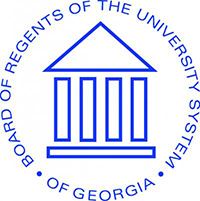
Even before the topic of sexual misconduct was making headlines, the Board of Regents (BOR) of the University System of Georgia (USG) set its sights on establishing consistent standards and protocols for sexual misconduct cases across the USG.
Even before the topic of sexual misconduct was making headlines, the Board of Regents (BOR) of the University System of Georgia (USG) set its sights on establishing consistent standards and protocols for sexual misconduct cases across the USG.
In August, the BOR adopted new policies concerning student sexual misconduct. The policies apply to all institutions within the USG, including Georgia Tech. Among other things, they define prohibited conduct, provide resources for those affected by sexual misconduct, and outline the procedure for reporting and addressing such conduct. To align with the BOR policy changes, Tech’s Sexual Misconduct Policy was also updated in August.
According to a statement released on Aug. 8, 2017, by Chancellor Steve Wrigley, “The goal of these policy updates is to improve campus safety and to ensure consistency and quality in student conduct investigations across the university system.”
One of the main policy changes applies to oversight of misconduct charges. Under the new policy, the USG office now has the responsibility for the entire system to oversee any misconduct cases that could result in suspension or expulsion. Prior to these changes, this oversight remained with the individual institutions.
The policy also updates the definition of a “Responsible Employee.” A Responsible Employee is required to report information regarding sexual or gender-based misconduct to the institute’s Title IX coordinator. Responsible Employees include any administrator, supervisor, faculty member, or other person (including students in some cases) in a position of authority who is not a Confidential Employee or Privileged Employee. The new policy clarifies that Confidential Employees, including VOICE advocates who advise and support victim-survivors, are not considered Responsible Employees and, therefore, do not have the same reporting obligations. The intent is to minimize the barriers that may prevent victims from seeking support.
“Even if you are not a Responsible Employee by definition, we all share a collective obligation as members of the Tech community to report prohibited conduct including sexual harassment, sexual misconduct, and gender discrimination,” said Marcia Bull Stadeker, Title IX coordinator in the Office of Legal Affairs and Risk Management.
Stadeker, who assumed her new role as Title IX coordinator for Georgia Tech this fall, adds that our obligation extends beyond reporting and also includes education and prevention measures to help ensure the safety of the Georgia Tech community. In addition to working with the BOR to coordinate Title IX policy changes, Stadeker and her office provide leadership for Title IX activities including consultation, education, and training. The office also helps ensure the Institute responds appropriately, effectively, and equitably to Title IX issues including sexual misconduct.
For more information on Title IX at Georgia Tech, visit titleix.gatech.edu.